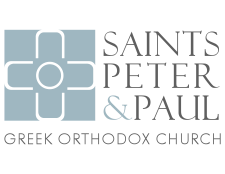As Orthodox Christians, we believe that life is a gift from God. The All-Holy and Life-Giving Trinity created all things and granted life to all living creatures. Out of His love, God made us, human beings, in His own divine image and likeness, entrusting us as stewards–not owners–of our lives, blessing us with the capacity of freedom, and calling us to a life of loving communion.
Christ identifies the very purpose of His incarnation and earthly mission with the gift of life, proclaiming, “I came that they may have life, and have it more abundantly” (John 10:10). Remaining faithful to the Lord’s Gospel, the Orthodox Church invites all human beings to enter in the living body of Christ, to be sustained through the life-giving sacraments, and to preserve and perpetuate both spiritual and physical life.
Suicide is the intentional causing of one’s own physical death through a decisive act. Suicide is regarded generally with the Orthodox Tradition as a rejection of God’s gift of physical life, a failure of stewardship, an act of despair, and a transgression of the sixth commandment, “You shall not kill” (Exodus 20:13). On one hand, the Church condemns acts of suicide and declines to offer a funeral service and burial to a suicide victim. On the other hand, the Church acknowledges that while human freedom was not annihilated by the Fall, both spiritual factors (like acedia- spiritual torpor) and physical factors (like depression) can severly compromise a person’s ability to reason clearly and act freely. In regard to suicide, the Church takes very seriously such spiritual and physical factors, and responds pastorally by offering a funeral service and burial to suicide victims whose capacities for judgment and action were found to be significantly diminished.
Depression is an illness caused by both medical and psychological factors. It is characterized by physical changes such as loss of appetite, weight loss, and in some cases, weight gain. Both insomnia and hypersomnia are common symptoms.
The primary focus of the Church and its pastoral ministry in cases of suicide is on the living, the family and friends of the deceased. Those left behind carry a great burden–of hurt, guilt, and shame–with the realization that their loved one has taken his/her own life. They look to the Church and especially to the parish family, for strength and hope regarding the deceased, and for the support and love they themselves urgently need.
Far more cases of suicide than previously recognized involve spirtual and/or physiological factors that significantly compromise a person’s rationality and freedom. The parish priest should always consult with his diocesan hierarch in order to discern the proper course of action, the general pastoral recommendation being that a church burial and memorial services could be granted unless there were an absence of signficantly diminished capacities.
Source: http://www.goarch.org/ourfaith/controversialissues
See also: http://www.goarch.org/news/2007-05-25-scobaletteronsuicide
See also: http://www.goarch.org/archdiocese/departments/youth/youthworkers/suicide.pdf
